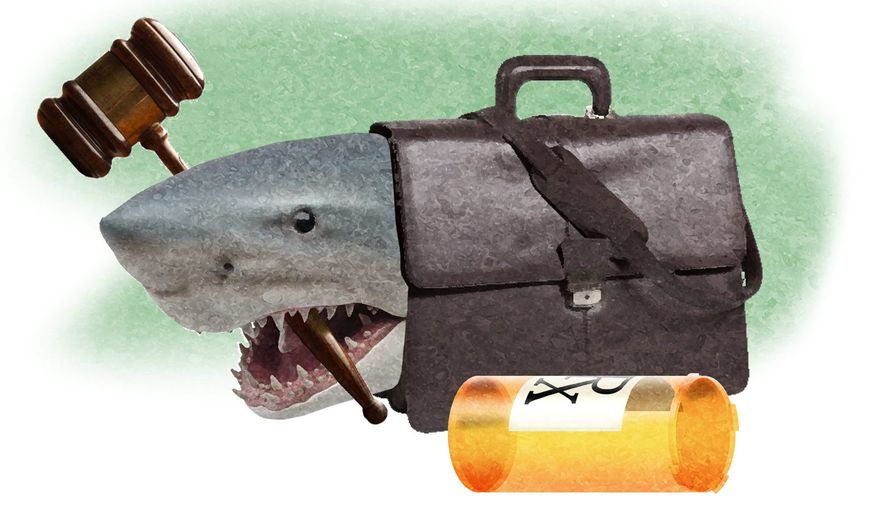OPINION:
Hard cases make bad laws. We are now watching the truth of that adage in real-time in opioid litigation proceedings in Ohio.
Federal Judge Dan Polster, a Clinton-appointed judge with senior or semi-retired status, was assigned to handle the massive National Prescription Opiate litigation involving thousands of lawsuits against opiate makers and pharmacies.
It’s large and complex litigation in which Judge Polster is going out of his way to force the pharmacy defendants into settling.
Judge Polster already seems to have condemned the pharmacies ominously, suggesting they offer up a settlement on the order of $26 billion or face ruination in court. “Everyone knows the dollar amounts the [manufacturers] are paying,” Judge Polster said. “It seems to me, that’s the benchmark.”
As if the manufacturers’ settlement implies that the pharmacies are guilty without a trial. That is not Judge Polster’s only perversion of the law.
The plaintiff lawyer-friendly Judge Polster has even suggested that plaintiff lawyers be formed as a special “negotiation class” to represent all local governments in the litigation, even those not part of the litigation. The unprecedented attempt to empower trial lawyers was so outrageous that the 6th circuit squelched it.
Judge Polster is applying pressure to the defendants by allowing the plaintiffs to argue that the defendants are liable under the application of the common law doctrine of public nuisance or interference with general rights of the public.
This is mind-blowing stretching of the law.
Traditional public nuisance cases involve annoying sounds (think blaring horns or overhead air traffic), sights (eyesores and bright lights) and smells (garbage dumps or other noxious emissions), usually in a particular local setting that are not otherwise covered by specific laws or regulation.
Recently, however, there has been a push to expand the doctrine of public nuisance outside its traditional bounds to areas such as climate change.
In the late 2000s, for example, several states, green groups and New York City sued a group of utilities over their carbon dioxide emissions, claiming that they were a public nuisance in contributing to global warming. In 2011, the Supreme Court rejected the public nuisance claim based on preemption, that is, the Clean Air Act and EPA regulation already regulated the emissions at issue.
In the late 1990s, Big City mayors sued the gun industry under public nuisance for gun violence problems. But Congress ended this litigation in 2005 with a law granting gun sellers immunity from liability arising from guns that were legally sold but then criminally misused.
Although the manufacture, sale and distribution of controlled substances like opiates are already highly regulated, plaintiff’s attorneys are urging Judge Polster to ignore preemptive law and regulation and try to bully defendant pharmacies into a settlement with a novel application of public nuisance doctrine.
If public nuisance were allowed to be applied against the defendant pharmacies, why wouldn’t it also be applied against the food and beverage industry for obesity, the alcohol industry for alcoholism, video game makers for behavioral problems or Big Tech for whatever damage can be imagined is caused by social media? The list of such possibilities is limitless.
Whatever your personal opinion of these various industries and societal issues and controversies, each certainly deserves to be treated on its own merits through the normal market and democratic processes versus a cowboy judge being aligned and prodded by plaintiff attorneys who stand to make a bundle from misfortune.
• Steve Milloy is an attorney and senior fellow with Energy & Environmental Legal Institute.




Please read our comment policy before commenting.